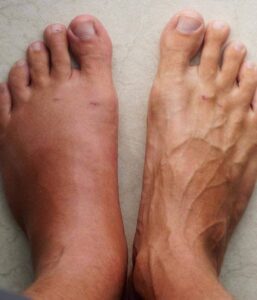One Month Before A Heart Attack, Your Body Will Warn You Of These 7 Signs
Yes, heart attacks are indeed a leading cause of death in the United States. The combination of a fast-paced lifestyle, poor diet, and high stress levels contribute to the increasing prevalence of this condition. Recognizing the symptoms of heart failure well in advance can be incredibly advantageous and potentially life-saving. Alongside maintaining a healthy lifestyle and managing stress, early detection can significantly reduce the risk of heart failure.
Certainly, paying attention to these signs is crucial as they could serve as warning signals for a potential heart attack within a month. Recognizing and addressing these symptoms promptly can be essential for timely intervention and preventing further complications.

Recognizing the symptoms of a heart attack is crucial for timely intervention and prevention of further complications. Here are some warning signs to watch out for:
- Swollen Feet: Congestive heart failure can lead to swelling in the legs, ankles, and feet due to poor blood circulation.
- Fatigue: Excessive tiredness and drowsiness may occur when the heart works harder than usual due to narrowed arteries.
- Shortness of Breath: Difficulty breathing may indicate a lack of oxygen to the lungs and may require immediate medical attention.
- Weakness: Poor blood circulation can cause weakness in the body, increasing the risk of unexpected falls.
- Dizziness and Cold Sweats: Restricted blood flow to the brain may cause dizziness and clamminess, which should not be ignored.
- Chest Pressure: Discomfort or pressure in the chest, which may intensify over time, could be a sign of an impending heart attack.
- Symptoms of Flu or Cold: Early signs of a cold or flu could indicate an impending heart attack, so it’s essential to pay attention to any sudden onset of flu-like symptoms.
If you or someone you know experiences these symptoms, seek medical attention promptly. Early detection is key to preventing a heart attack.






